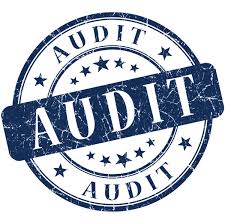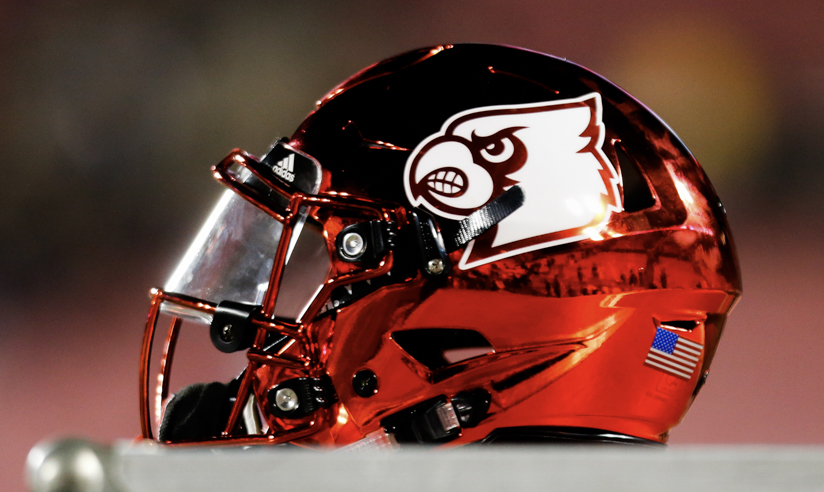Tax month in the United States brings out the paperwork, the receipts, and the stress. Put it on the calendar – mid-April. Every. Single. Year.

Will you or won’t you get audited? Though the IRS audits well more than a million tax returns, it’s just one-half of one percent of all returns that get the second look.
Equipment Managers, though, don’t have audits normally scheduled. They can’t see them coming at them.
It’s like a pop quiz – a pop quiz / final exam combo.

“Most universities get audited,” admits Matthew Althoff, Equipment Operations Manager at the University of Virginia.
Some universities do an audit regularly—like every four years. But administrators don’t normally tip their hand at what they want to inspect.
“Every university does it differently, but they are not looking to get you in trouble. What they do what to see is if you are following policy and procedures,” Matthew said.
Inspectors may count jerseys or check other inventory. They may check certain bookkeeping or paperwork.
Internal or External Audit
Once they are completed, the internal auditors or inspectors will return a report that includes recommendations and a timeline of when improvements must be made – typically within a year.

An external audit, Matt says, is much more serious.
When the state or another governmental agency, conducts an audit, their findings may result in much more serious consequences—such as fines or penalties. If serious negligence is found, some people may lose their jobs.
“What they may do is pick random purchase orders for the year and ask for the PO, then the invoice, and then they would check the inventory,” Matt says. “And you have to show what you used, how it was used, and who used it.”
Preparation for an Audit
How do you prepare?

“It’s what you’ve been doing throughout the year,” Matt says. “Have your paperwork done and complete. Documentation is important—such as your purchase orders and invoices, and all that.”
How to do it?
Organized files. Everything written down. Everything accounted for. No shortcuts.
“Everybody hates the paperwork – but that is what they are looking for,” Matt says.
The bigger the school, the more equipment, the more apparel, the more paperwork, and the more frequent audits.
Taxation Issues
Lately, the big question about audits is how the new tax situation impacts equipment rooms. Now, coaches are taxed for the apparel they are provided. So, it’s up to the Equipment Manager to report what goes to the coaches and what it’s worth.
When we started asking around about the apparel tax issue, one name kept coming up – Chuck Hall at the University of Louisville.

“This situation is going to impact everyone,” said Chuck, Director of Equipment Operations at Louisville. “What is happening is that programs are signing with these huge sponsors, such as Nike and Under Armor. These are huge numbers and the big contract comes in and the IRS comes in and says they want their portion.”
Taxing Coaches’ Gear
So, coaches and staff now get taxed on gear. It’s treated as extra income and no one particularly likes it, but that doesn’t matter.
Some coaches take in thousands of dollars of apparel in a month. The tax on that kind of benefit is going to significantly impact that month’s paycheck. The equipment staff must be able to work with payroll, the accountants, and the finance department to get it right.

Athletes are not taxed for their equipment and apparel (but there are other rules to be aware of, of course).
“I created an inventory system here that helped create a taxing system. That report goes to our payroll department every month, then every quarter we get spot checks to ensure we are reporting everything.”
Questions remain about whether coaches' game day wear should be taxed. As more programs are audited, the answer will become less fuzzy. As for Louisville, Chuck has his marching orders.
“Some don’t tax game day stuff. We were told we had to, so we do,” he said.
Equipment Managing Changing
Chuck says the job has changed dramatically.
“Your equipment background is what you learn through the course of time,” he said. “Now you’ve got to know some accounting, finance—a lot of numbers, a lot of sitting in front a computer.”
Equipment Managers must be able to put together and keep a budget maintained. Then, they need to keep an inventory system that shows what you have, where it came from, and where it went or where it is.
The Louisville staff implemented a new inventory system and budget system a few years back when Chuck was hired after an audit and follow-up checkups found systems lacking.
A year ago, in February 2018, systems where checked again and the department was audited.

“We passed.”
Should You Fear an Audit?
Does it scare you? Does it make you frightened of an audit?
It shouldn’t, Chuck counsels.
“One of the big things I remind our staff is that we aren’t going to get in trouble if we are off a little. I remind them that the report will be published and we will need to respond to what we can do better.”
One advantage of undergoing such scrutiny is that the Equipment budget can grow. When Equipment Managers or Directors request funds for more people, software, and other equipment to do the job, some administrations can be slow to respond.
But when an audit shows the millions of dollars of apparel that run through the equipment room and the requirements of the job, suddenly funding comes through.

Some schools are implementing new systems and reporting the gear, others are taking a wait and see approach. Those who aren’t moving along must be wary of an audit and the possible fines, or worse, that will come eventually.
This tax situation isn’t going anywhere, Chuck said. “Everyone will have to do this.”
“Uncle Sam wants his portion.”